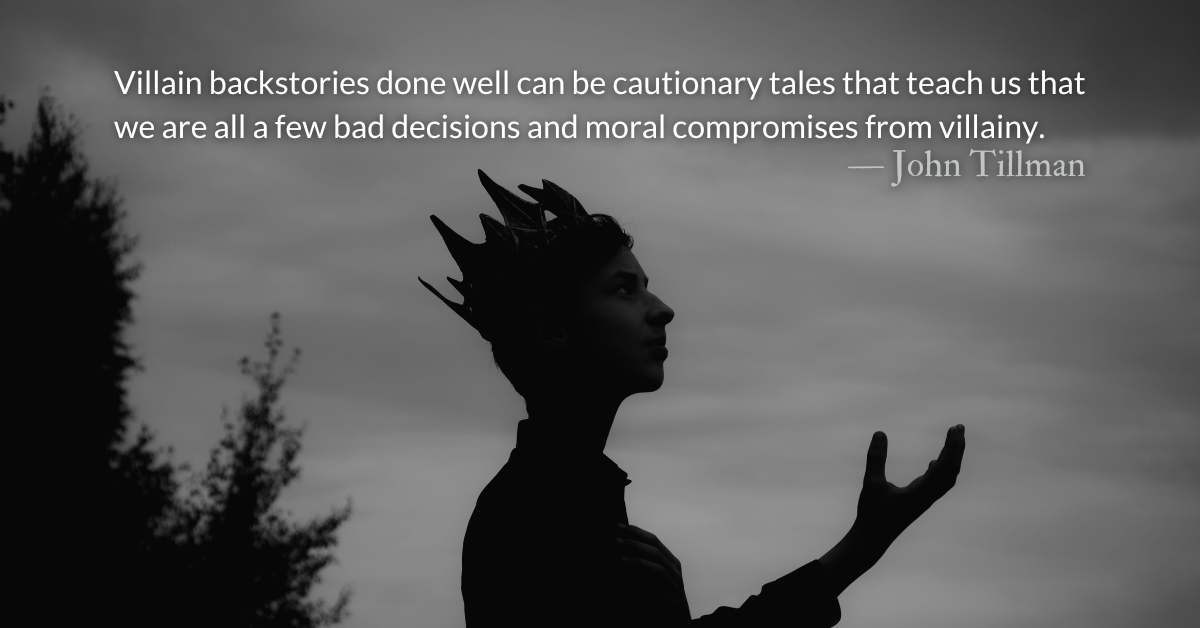Links for today’s readings:
Read: 1 Samuel 10 Listen: (4:34) Read: 2 Peter 2 Listen: (3:52)
Scripture Focus: 1 Samuel 10.24-26
24 Samuel said to all the people, “Do you see the man the Lord has chosen? There is no one like him among all the people.” Then the people shouted, “Long live the king!” 25 Samuel explained to the people the rights and duties of kingship. He wrote them down on a scroll and deposited it before the Lord. Then Samuel dismissed the people to go to their own homes. 26 Saul also went to his home in Gibeah, accompanied by valiant men whose hearts God had touched.
Reflection: A Sympathetic Villain Origin Story
By John Tillman
Saul’s humble beginnings sound like a hero’s. But he became a villain.
When Samuel first met him, Saul was a long way from home, broke, with no food, was indecisive, and a bit of a blunderer. Saul failed to find the donkeys he was sent to seek and was gone long enough that his father was worried about his son instead of the donkeys. Saul didn’t have much going for him in the way of kingly attributes, other than being tall and handsome, but he got the job anyway. (That usually seems to be enough, doesn’t it?)
Saul had everything he needed to be a great and heroic leader: a humble beginning, a wise mentor, willing followers, and the Spirit of God upon him. However, this sympathetic start was a villain’s origin story.
In recent decades, the entertainment industry has obsessed over sympathetic villain origin stories. Maleficent from Sleeping Beauty, Cruella de Vil from 101 Dalmatians, and Scar from The Lion King each got prequel stories explaining their motivations in a sympathetic manner. The Joker from Batman, President Snow from The Hunger Games, and Sauron from Lord of the Rings have origin stories in film or television telling how they became the villains we fear. The Wicked Witch from The Wizard of Oz got a full hero’s rewrite as Elphaba from Wicked.
Villain backstories done well can be cautionary tales that teach us that we are all a few bad decisions and moral compromises from villainy. Done badly, they excuse violence and become apologetics for ruthlessness and vengeance.
It’s worth examining Saul’s villain origin story as a warning to ourselves from two perspectives.
First, we must remember that villains think themselves heroes. Saul starts out “small” in his own eyes (1 Samuel 15.17) yet becomes a despot who build monuments in his own honor. (1 Samuel 15.12) The path of humility is hard and narrow. The path of pride is wide and easy.
Second, we must remember that people we trust and follow or love and mentor can become villains. I don’t think Samuel knew Saul’s destiny. At the beginning, he seemed genuinely hopeful. Someone you love right now might be on a villain’s path. Hope is good. Naiveté is not. It’s okay to be inspired and aspirational. But you need to be ready to stand in their way to confront them or tear yourself away from them.
Lord give us wisdom!
Divine Hours Prayer: A Reading
Jesus taught us, saying: “In all truth I tell you, I am the gate of the sheepfold. All who have come before me are thieves and bandits; but the sheep took no notice of them. I am the gate. Anyone who enters through me will be safe: such a one will go in and out and will find pasture.” — John 10.7-9
– Divine Hours prayers from The Divine Hours: Prayers for Summer
by Phyllis Tickle
Read more: Selfish Supermen
Flawed heroes in the Bible, like Samson, do not excuse flawed leaders today.
Read more: Don’t Empower Villain Eras
The same person who is heroic in one moment can be villainous in another.


